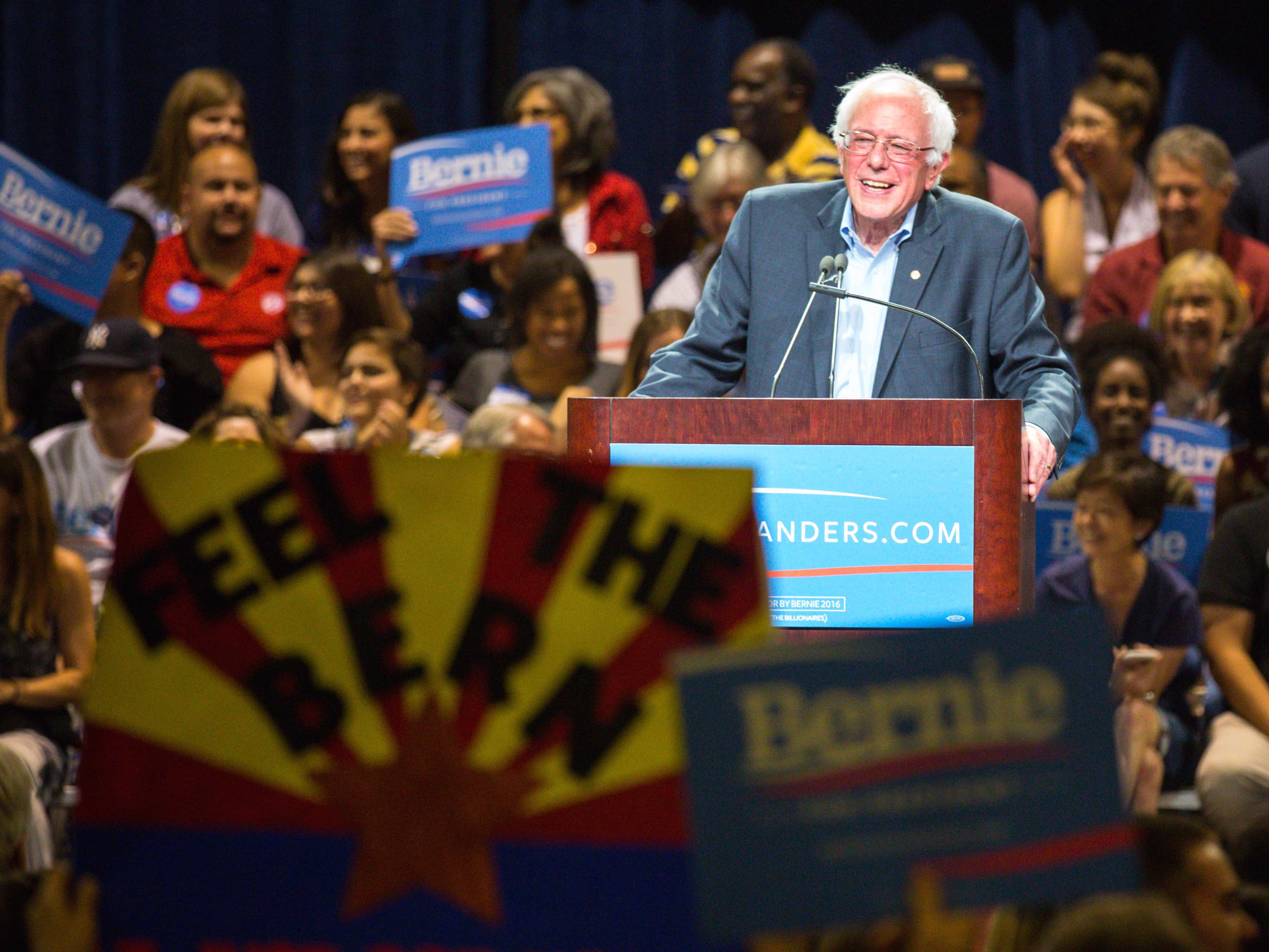Young Americans ‘feel the Bern,’ but distrust establishment politics

Vermont Senator Bernie Sanders speaks to the crowd at the Phoenix Convention Center on July 18, 2015, in Phoenix, Arizona.
Against a backdrop of global political and economic turmoil, people around the world are becoming increasingly disenchanted with democracy, and the trend is particularly pronounced among young Americans, according to the latest public opinion research.
The World Values Survey, presented by Harvard scholars Roberto Foa and Yascha Mounk, found that fewer than 30 percent of American respondents born since 1980 said living in a democracy is essential. When asked to rate their degree of interest in politics as a percentage, the average answer was 45 percent.
While the picture the survey depicts is one of political disillusionment, the large numbers of young people backing the presidential bid of Vermont Senator Bernie Sanders rivals the wave of youth support that swept Barack Obama into office in 2008.
“Nearly 84 percent of democrats under 30 caucused for Sanders. The phrase many young people are using is ‘feel the Bern,’” said Christopher Beem, managing director of the McCourtney Institute for Democracy at Pennsylvania State University. The wordplay of the candidate’s name is symbolic of his surging popularity among young Democrat voters.
However, there is a persistent attitude of discontent with established politics among young people, said Shauna Shames, an assistant professor of political science at Rutgers University. “They are skeptical about many features of the US political system, especially the outsized role of corporate money in political campaigns,” she said.
Moreover, surveys also reveal that only “a minority of youth really believe in voting as an effective way to change society,” said Kei Kawashima-Ginsberg, director of Tisch College’s Center for Information and Research on Civic Learning and Engagement at Tufts University. “Their mistrust toward ‘politics as usual’ may simply represent their sense of disempowerment more than anything.”
When explaining Sanders’ appeal to the youth, analysts contend that his crusade against corporate money in politics and his vision to make college free by raising taxes on Wall Street addresses a top concern of the millennial generation: student loan debt. The economic situation of students who graduated after the financial crisis is particularly disturbing, Beem said. “Many are saddled with enormous student loan debt. Seven in 10 students graduate with debt, and the average debt for class of 2015 graduates is a little more than $35,000,” Beem said. “And while the unemployment rate is quite low in the US, many of those jobs are service jobs that do not pay enough to pay off these loans. Even 20 years ago, college loan debt was about a third of what it is now.”
Beem said the implications for the future of democracy could be dire if trends of political disillusionment continue. “If young people continue to remain disengaged, it is a near certainty that their generation will have less impact on policy decisions. Issues that concern them most, such as the cost of college, climate change and wealth disparity, are less likely to be dealt with effectively,” Beem said.
Wang Youran is a reporter at the Chinese Social Sciences Today.
